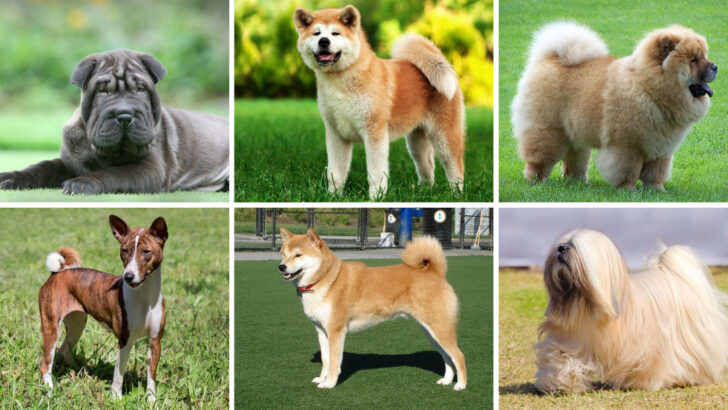Not every dog gets along with every other dog, and that’s just part of their unique personalities. Some breeds have a natural tendency to be more territorial or independent, which can make playdates or walks at the park a little tricky. While they might be friendly and affectionate with their humans, these dogs may not always share that same warmth when it comes to fellow canines.
Understanding which breeds can be a bit more challenging in terms of socializing with other dogs is key for pet owners, especially if you already have other dogs at home or plan to introduce a new one into the mix. It’s not that these dogs are “bad” – they simply have different social needs, and with the right training and patience, many can learn to coexist peacefully with other dogs. Let’s take a closer look at the breeds that tend to be a bit more selective in their doggy friendships.
Akita
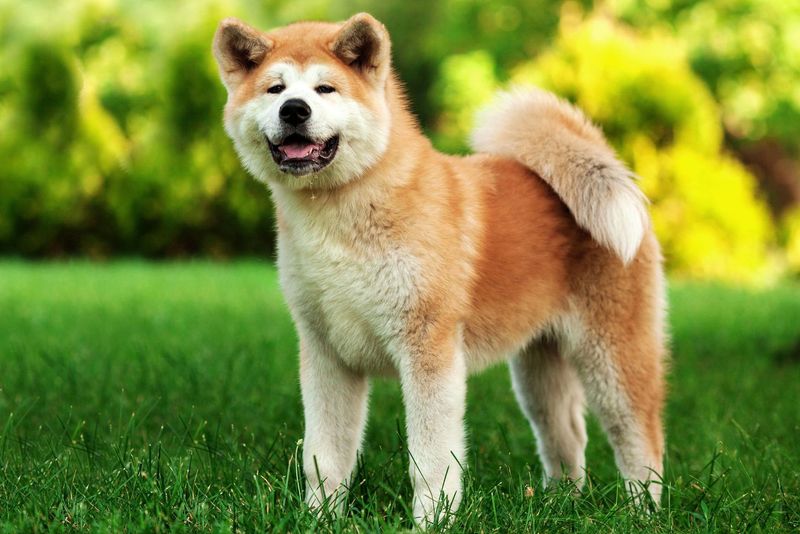
Akitas are known for their intensity and independence. Originally bred in Japan as hunting and guard dogs, Akitas have a strong prey drive and a dominant personality, making them less likely to befriend other dogs easily.
Their loyalty and devotion are generally reserved for their human family members, which can sometimes translate into aloofness towards other canines. Socialization from a young age is crucial for Akitas to help them become more adaptable around other dogs.
Owners should supervise interactions with other dogs and ensure that Akitas are always well-trained to mitigate any potential issues.
Chow Chow
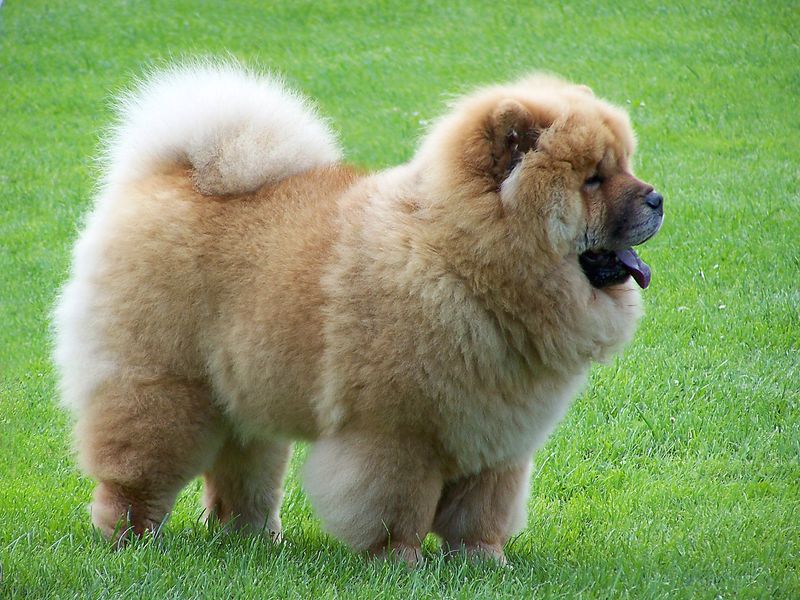
Chow Chows are often described as cat-like due to their aloof and independent nature. This breed has a history of being used as a guard dog in China, contributing to their reserved demeanor around unfamiliar dogs.
They may not always seek the company of other dogs and can be territorial, especially in their own home. Early socialization can help mitigate these tendencies, but it’s not uncommon for Chow Chows to prefer solitude.
Owners should respect their Chow Chow’s personal space while ensuring they have positive experiences with other dogs from an early age.
Basenji
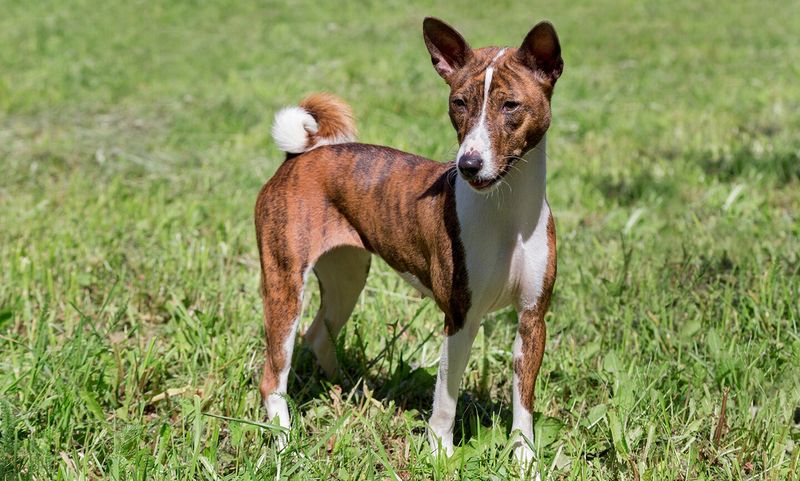
Basenjis are small hunting dogs known for their unique yodel-like bark and independent nature. Originating from Central Africa, they have a strong prey drive and a tendency to be aloof with other dogs.
Their independent streak makes them less likely to form immediate friendships with unfamiliar dogs. However, with proper socialization, Basenjis can learn to coexist peacefully with other canines.
It’s important for owners to be patient and consistent in their training efforts, providing enriching environments where their Basenji can feel comfortable and secure around other dogs.
Shiba Inu
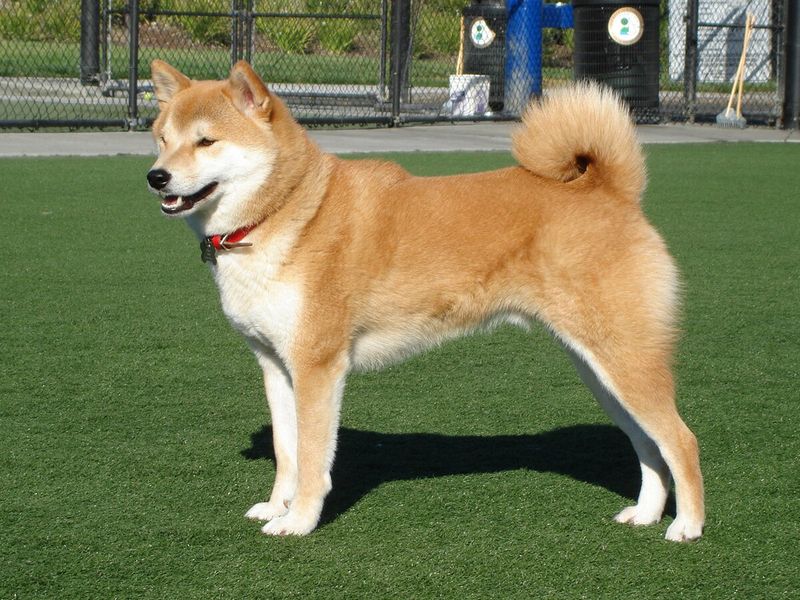
The Shiba Inu is a small, agile dog known for its spirited personality and independence. Originating from Japan, this breed can be reserved with other dogs, preferring its own company or that of its human companions.
Shibas are known for being bold and confident, sometimes leading to dominance when interacting with other dogs. Socialization from an early age is essential to help them integrate better with other canines.
Owners should foster positive interactions with other dogs, ensuring that Shiba Inus learn to engage safely and confidently in various social settings.
Shar Pei
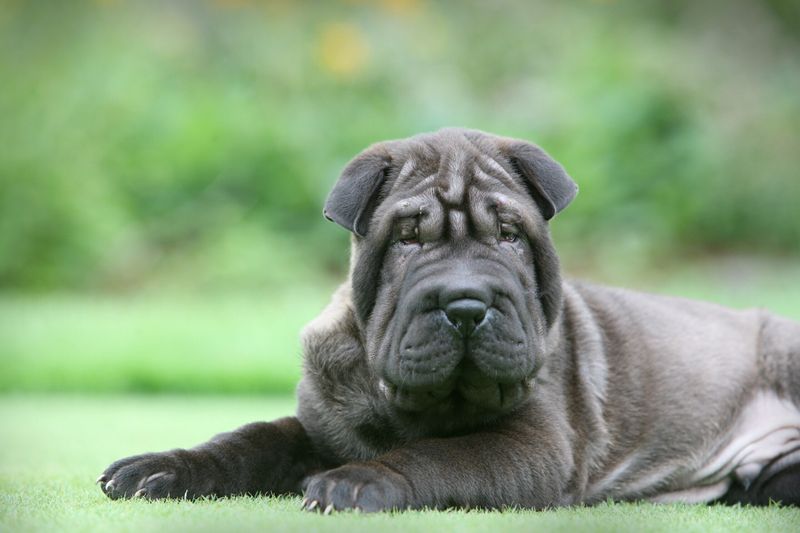
Shar Peis are known for their distinctive wrinkled appearance and dignified demeanor. Originally bred in China for hunting and guarding, they can be quite reserved and sometimes wary around other dogs.
Their independence and loyalty to family can result in less interest in socializing with unfamiliar canines. Early socialization and training are crucial in helping Shar Peis develop better social skills.
Owners should prioritize controlled and positive interactions with other dogs, allowing their Shar Pei to build confidence and comfort in various social environments.
Lhasa Apso
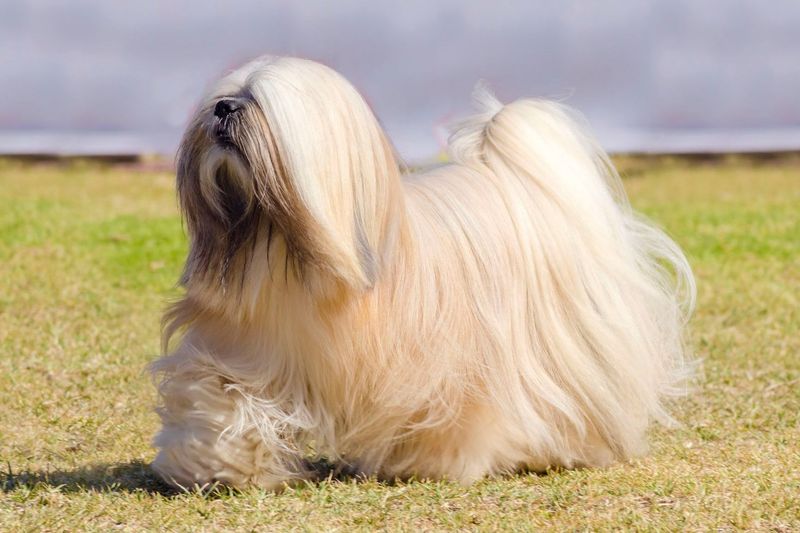
Lhasa Apsos are small dogs known for their long, flowing coats and independent nature. Originating from Tibet, they were bred as sentinel dogs in monasteries, explaining their alert and sometimes aloof demeanor.
While they can be affectionate with family, they tend to be standoffish with other dogs, especially strangers. Early socialization can help Lhasa Apsos adjust to other canines, though they may still prefer their own company.
Owners should encourage positive interactions and provide ample opportunities for their Lhasa Apso to engage with different dogs in a controlled and friendly manner.
Afghan Hound
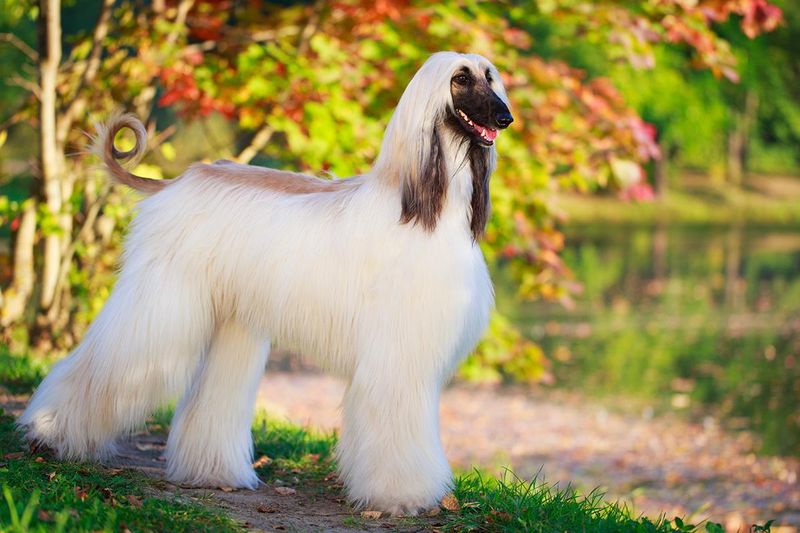
Afghan Hounds are known for their elegance and independence. Originating from the mountainous regions of Afghanistan, these dogs were bred for hunting and have a strong prey drive, making them somewhat reserved around unfamiliar dogs.
Their aloofness and strong sense of independence can lead to difficulties in forming friendships with other dogs. However, with proper socialization, they can coexist peacefully in a multi-dog household.
Owners should focus on early social training and provide a stimulating environment where Afghan Hounds can feel comfortable and secure when around other canines.
Jack Russell Terrier
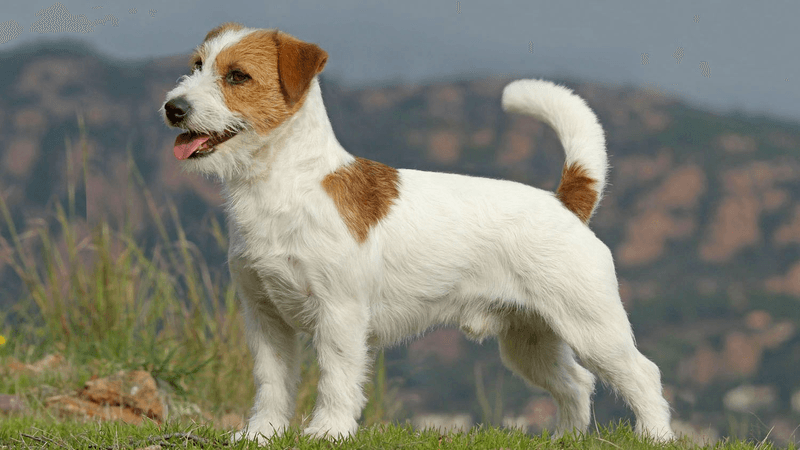
Jack Russell Terriers are small, energetic dogs known for their intelligence and tenacity. Originally bred for fox hunting, they have a strong prey drive and a confident attitude, which can sometimes make them challenging with other dogs.
Their bold nature can lead to dominance issues, especially with other dogs of the same sex. Socialization from a young age and consistent training are vital to help them interact positively.
Owners should channel their Jack Russell’s energy into structured play and training sessions, fostering an environment where they can develop healthy relationships with other dogs.
Dachshund
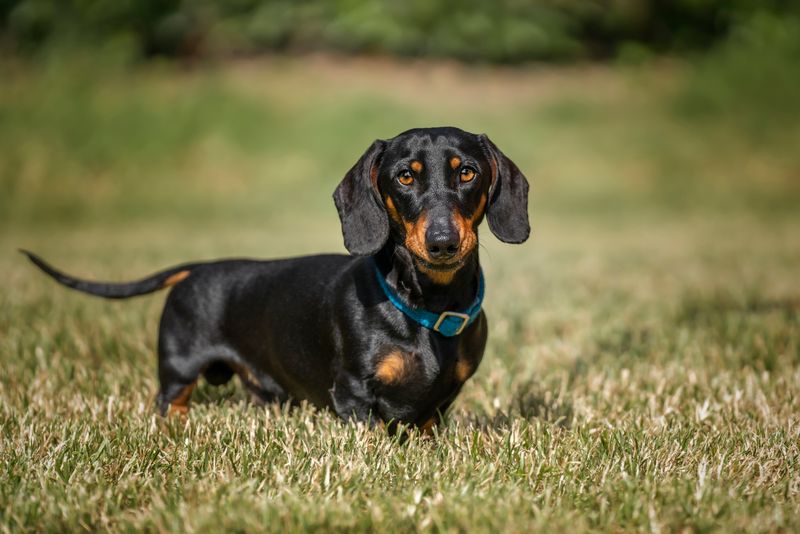
Dachshunds are known for their unique elongated bodies and hunting instincts. Bred in Germany to hunt badgers, they have a tenacious and independent streak that can make them wary of other dogs.
Their strong sense of loyalty is often reserved for their human family, and they may show aloofness towards unfamiliar canines. Socialization is crucial to help them become more comfortable in the presence of other dogs.
Owners should provide positive social experiences and consistent training to ensure their Dachshund develops into a well-rounded companion that can share space amicably with other dogs.
Scottish Terrier
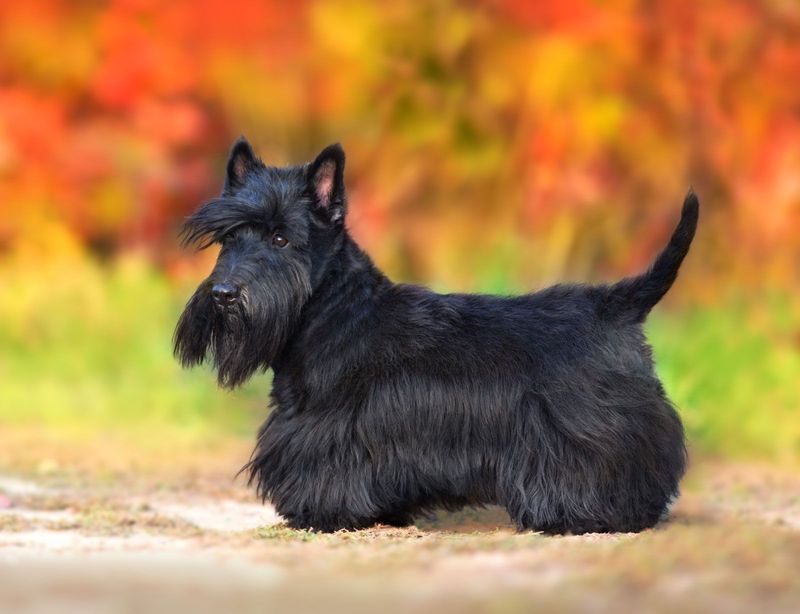
Scottish Terriers, often called Scotties, are known for their distinctive appearance and strong-willed nature. Bred to hunt and guard, they have a reputation for being independent and sometimes aloof with other dogs.
Their loyalty to their human family can lead to territorial behavior, especially around unfamiliar canines. Early socialization and firm, consistent training are crucial for Scotties to develop good social skills.
Owners should encourage positive interactions with other dogs, ensuring that their Scottish Terrier learns to engage in a controlled and sociable manner, building confidence and trust in various social settings.
Fox Terrier
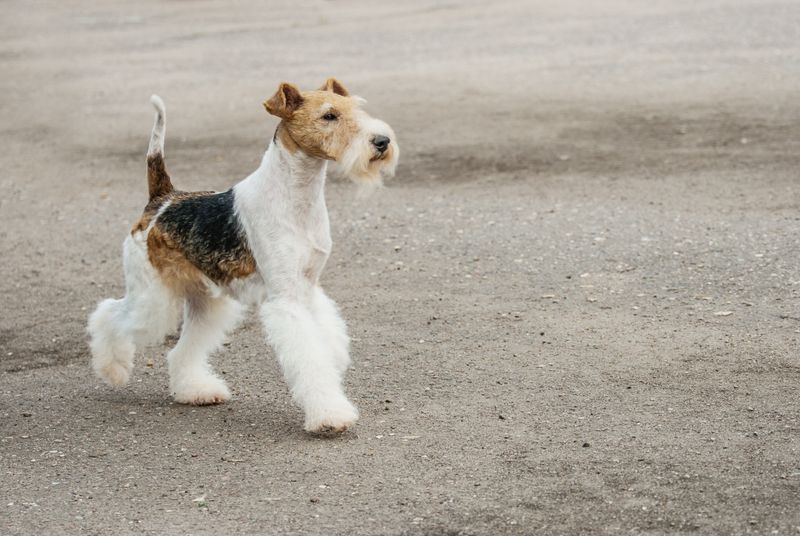
Fox Terriers are lively and intelligent dogs, originally bred for fox hunting. Their energetic and independent nature can sometimes make them less sociable with other dogs.
Their confidence can lead to dominance issues with other canines, particularly those of the same sex. Socialization and training from an early age are essential to help them adjust to different doggy interactions.
Owners should provide ample opportunities for their Fox Terrier to meet and play with other dogs in a structured environment, fostering positive relationships and building their social confidence.
Miniature Pinscher
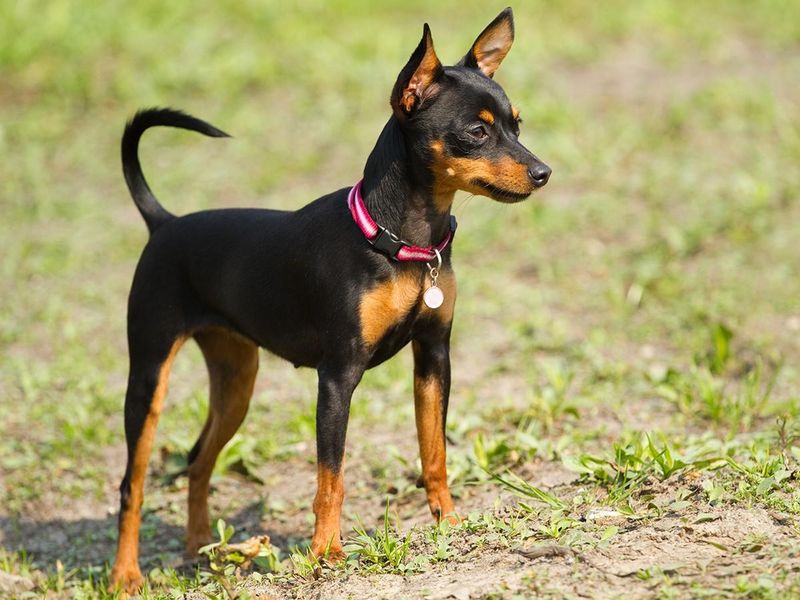
Miniature Pinschers, often called “Min Pins,” are small dogs with big personalities. Known for their spirited and independent nature, they were originally bred in Germany as ratters and companion dogs.
Their bold demeanor can sometimes lead to challenges when interacting with other dogs, as they may try to assert dominance. Early socialization and positive reinforcement training are key to fostering good relationships.
Owners should focus on introducing their Min Pin to a variety of dogs and environments, ensuring they develop into well-adjusted companions that can coexist peacefully with other canines.
Cairn Terrier
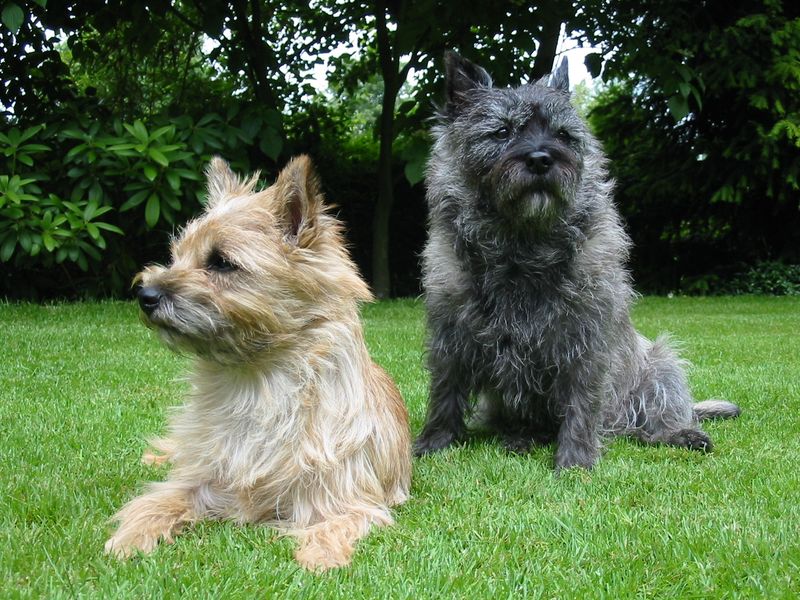
Cairn Terriers are small, sturdy dogs known for their curious and independent nature. Originally bred in Scotland for hunting small game, they possess a strong prey drive that can make them wary around unfamiliar dogs.
Their independent streak can sometimes translate into aloofness with other canines, especially in new environments. Early and consistent socialization is vital to help them adapt to various social settings.
Owners should encourage controlled interactions with other dogs, offering positive experiences and environments that allow their Cairn Terrier to develop into a confident and sociable companion.
Boston Terrier
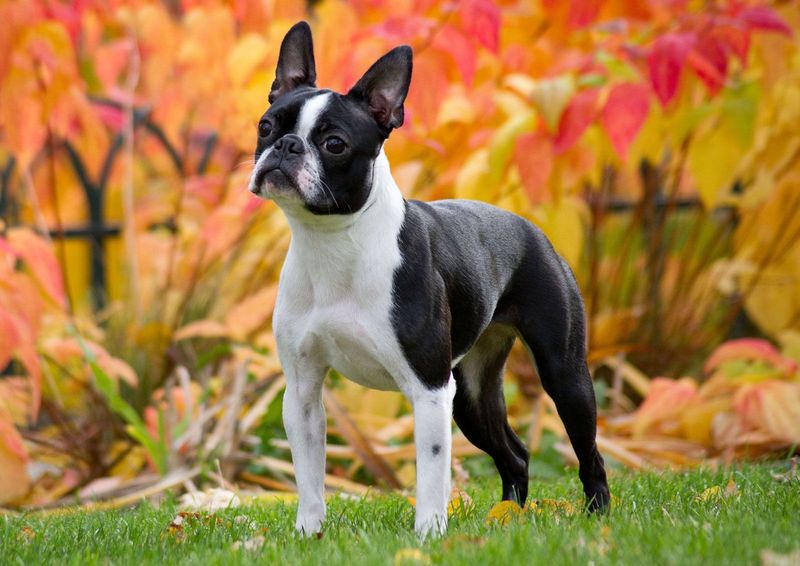
Boston Terriers, also known as “American Gentlemen,” are small dogs with distinctive black and white markings. They are known for their friendly yet independent nature.
While they can be affectionate with family, they might not always seek the company of other dogs, especially if not socialized early. Their independent streak can sometimes present challenges in multi-dog households.
Owners should prioritize early socialization and training to ensure their Boston Terrier develops good social skills, allowing them to engage positively with other dogs in various settings.
Chihuahua
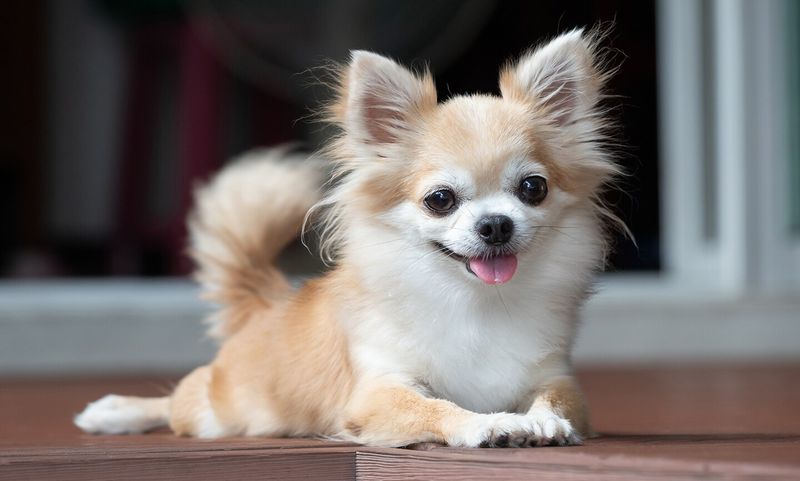
Chihuahuas, though tiny, possess a big personality and a strong sense of independence. Originating from Mexico, they are known for their loyalty to their human companions, often showing aloofness towards unfamiliar dogs.
Their bold nature can sometimes lead to challenges when interacting with larger dogs. Socialization from an early age is crucial to help them develop comfort and confidence in the presence of other canines.
Owners should introduce their Chihuahua to a wide variety of dogs and environments, fostering positive experiences that encourage sociable behavior without overwhelming their small stature.
Pekingese
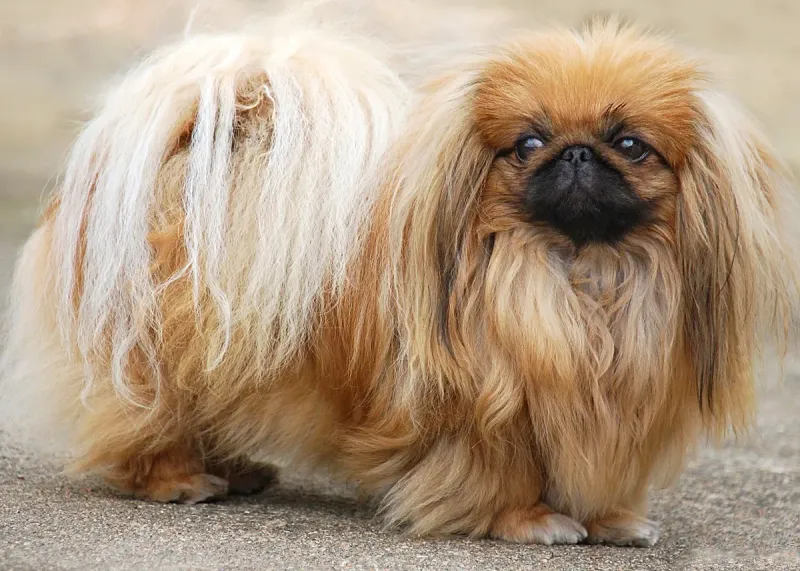
Pekingese are small, lion-like dogs with a rich history as companions to Chinese royalty. Their independent and sometimes aloof nature can make them less inclined to seek friendships with other dogs.
This breed’s loyalty is often reserved for their human family, and they may be wary around unfamiliar canines, especially in their own territory. Early socialization is key to helping Pekingese adapt to different social settings.
Owners should focus on providing structured and positive interactions with other dogs, ensuring their Pekingese develops confidence and sociability while respecting their independent spirit.
Tibetan Mastiff
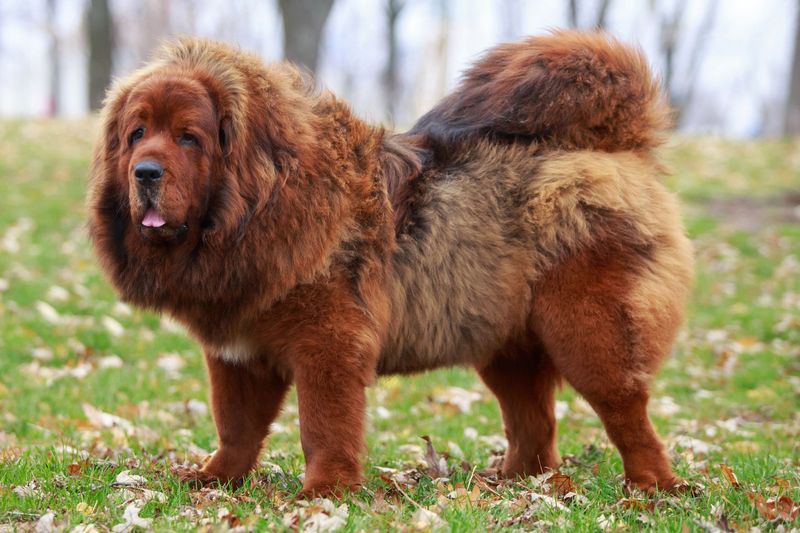
Tibetan Mastiffs are large, powerful dogs known for their independence and protective nature. Originating from the Himalayas, they were bred to guard livestock and property, contributing to their aloof demeanor.
While they are loyal to their families, they can be wary of other dogs, especially those they perceive as a threat. Socialization and training from a young age are crucial to foster good behavior around other canines.
Owners should provide a structured environment where their Tibetan Mastiff can engage with other dogs positively, ensuring they develop into well-rounded companions without compromising their guarding instincts.
French Bulldog
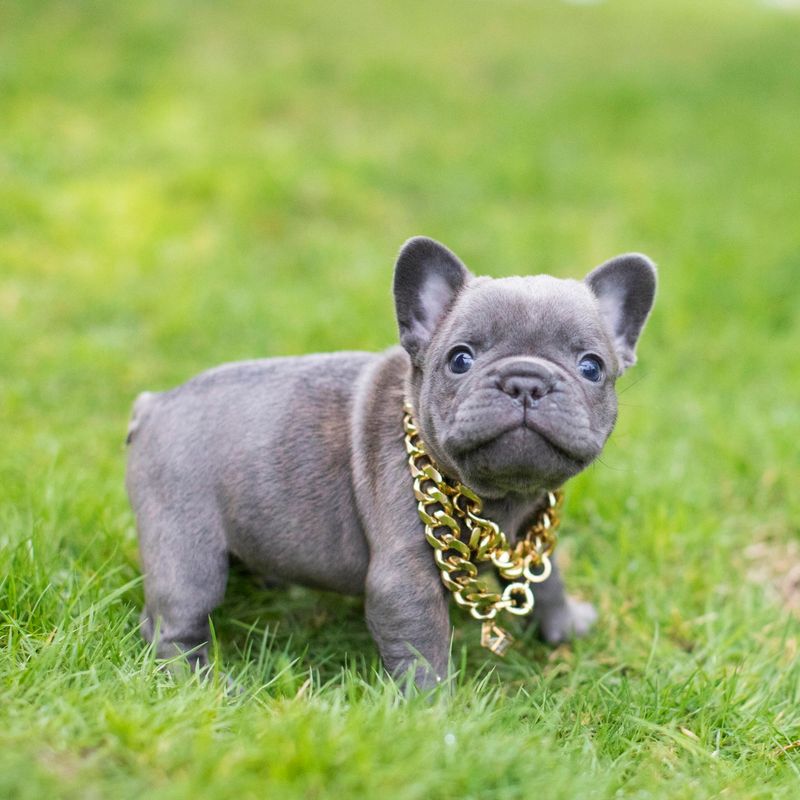
French Bulldogs are known for their charming personalities and distinctive bat-like ears. While they are affectionate and sociable with humans, they may not always be the best companions with other dogs.
Their independent streak can sometimes lead to dominance issues, particularly with dogs of the same sex. Early socialization and consistent training are important to help them adjust to different social scenarios.
Owners should introduce their French Bulldog to various dogs and environments, fostering positive interactions that build confidence and reduce any tendencies towards aloofness or dominance.
Tosa Inu
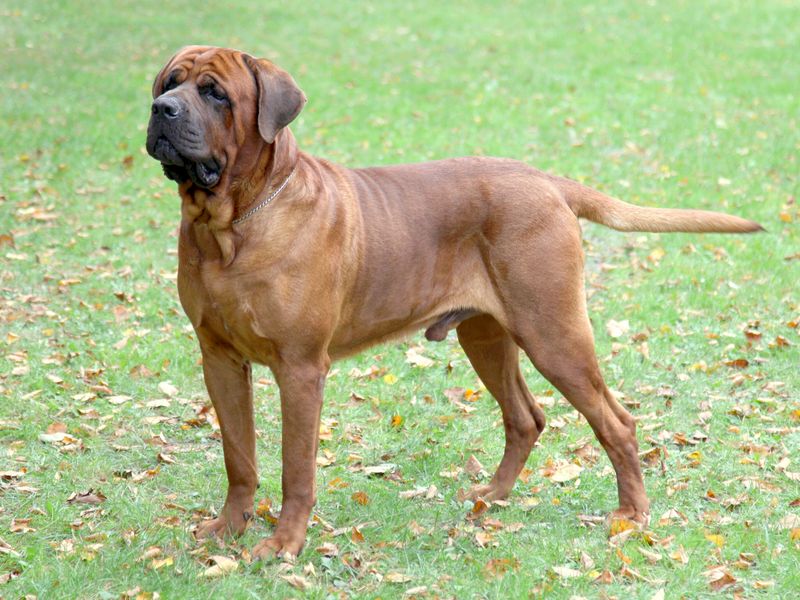
The Tosa Inu, a large and powerful breed from Japan, is known for its strength and independent nature. Originally bred for dog fighting, they can be reserved and sometimes aloof with other dogs.
Their dominant personality requires careful handling and early socialization to ensure they can coexist peacefully with other canines. Owners must be experienced and confident in managing strong-willed breeds.
Structured training and positive reinforcement can help Tosa Inus develop good social skills, allowing them to engage in controlled interactions with other dogs and become well-adjusted companions.
Bullmastiff
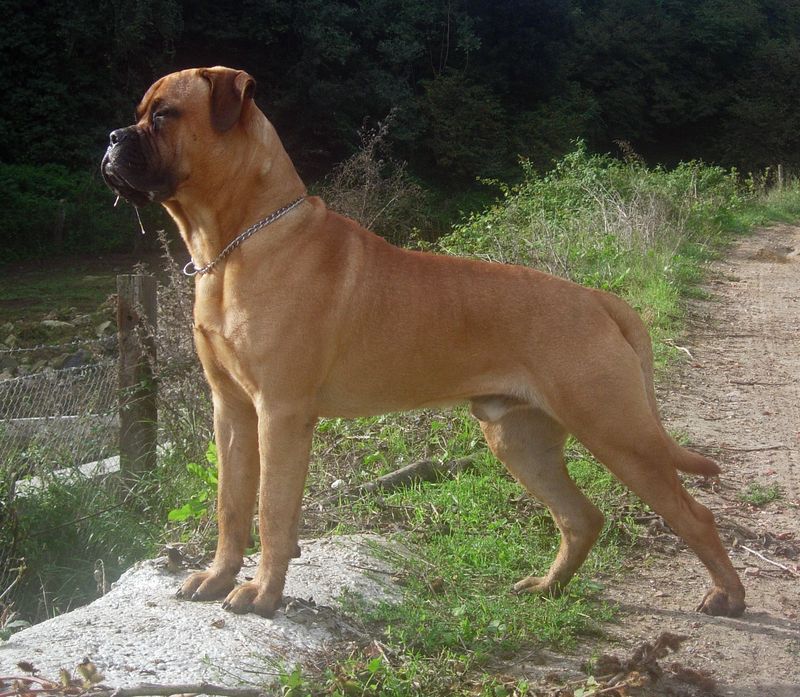
Bullmastiffs are large, powerful dogs known for their protective instincts and independent nature. Bred to guard estates, they tend to be aloof with unfamiliar dogs, focusing their loyalty on their human families.
While they can be gentle giants, their size and strength necessitate careful socialization and training from a young age. Interactions with other dogs should be supervised to ensure positive outcomes.
Owners should foster a structured environment where Bullmastiffs can engage with other dogs safely, promoting social confidence and reducing any natural tendencies towards aloofness or dominance.
Mastiff
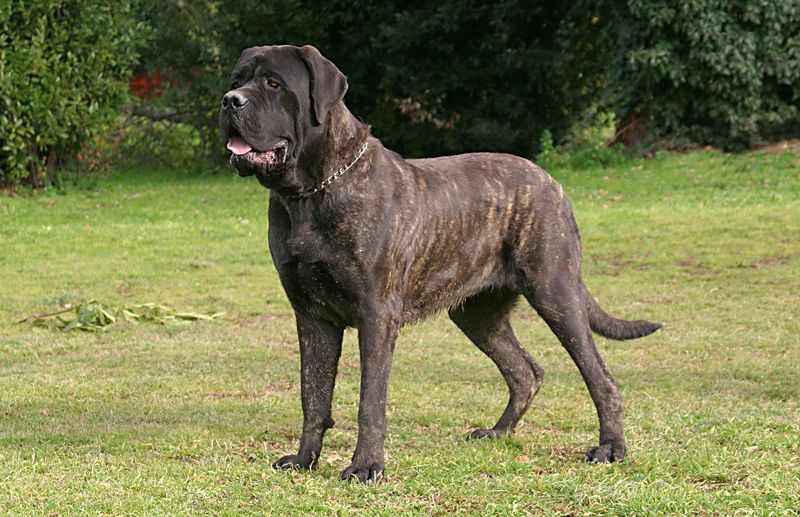
Mastiffs are known for their immense size and gentle yet independent nature. Their guarding instincts make them devoted to family but often aloof with other dogs.
Early socialization is vital to ensure they develop good social skills and can interact positively with other canines. Due to their size and strength, owners should be mindful of their Mastiff’s interactions.
Providing controlled social experiences helps Mastiffs become well-rounded companions, reducing any potential aloofness and fostering positive behavior around other dogs.
Alaskan Malamute
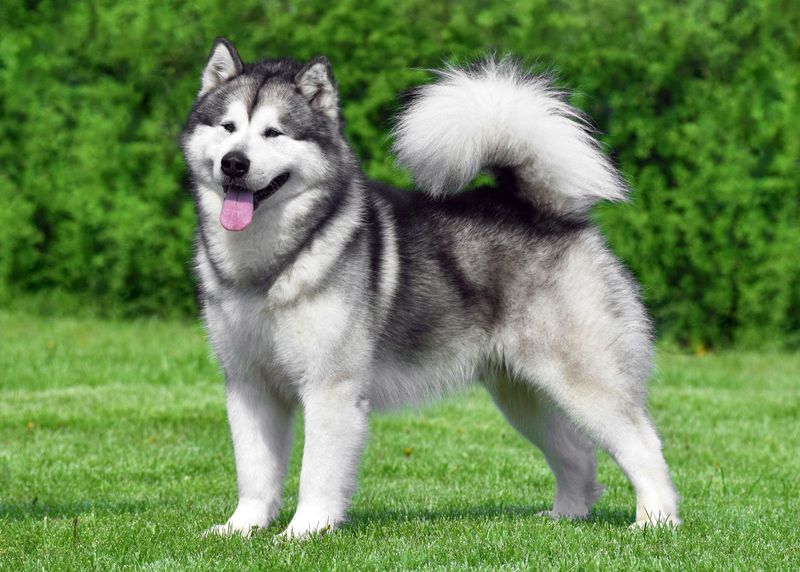
Alaskan Malamutes are strong, independent dogs, bred for sledding in harsh Arctic conditions. Their pack instincts and high energy levels can sometimes lead to challenges with other dogs.
While they can be friendly, their independence means they might not always seek close relationships with unfamiliar canines. Socialization from an early age is crucial to help them adapt.
Owners should focus on structured training and positive interactions, ensuring their Malamute learns to coexist peacefully with other dogs without compromising its independent spirit.
Doberman Pinscher
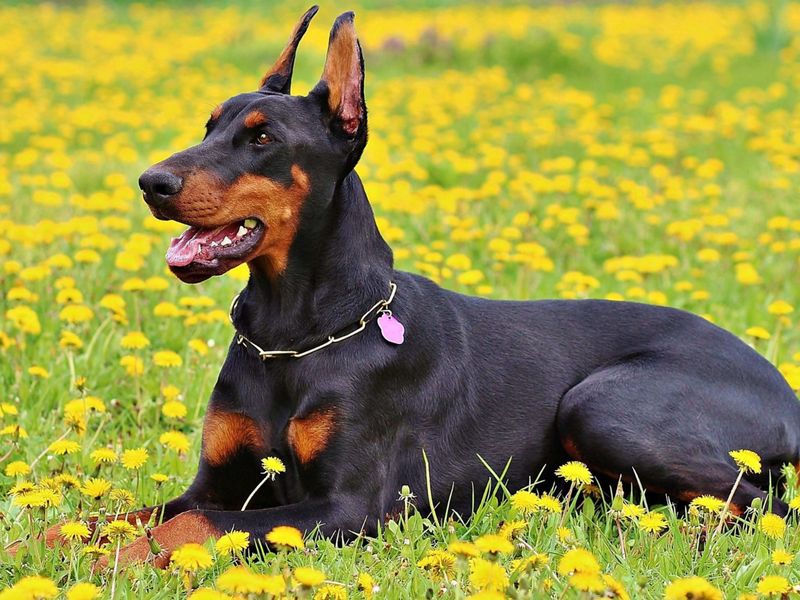
Doberman Pinschers are known for their intelligence and protective nature. Bred for security work, their loyalty to their human companions can sometimes translate into aloofness with other dogs.
Their assertive personality requires early socialization and consistent training to ensure they can interact positively with other canines. Owners should be experienced in handling strong-willed breeds.
Providing structured social experiences helps Dobermans develop good behavior around other dogs, reducing any natural tendencies towards dominance or aloofness, while maintaining their protective instincts.
Great Dane
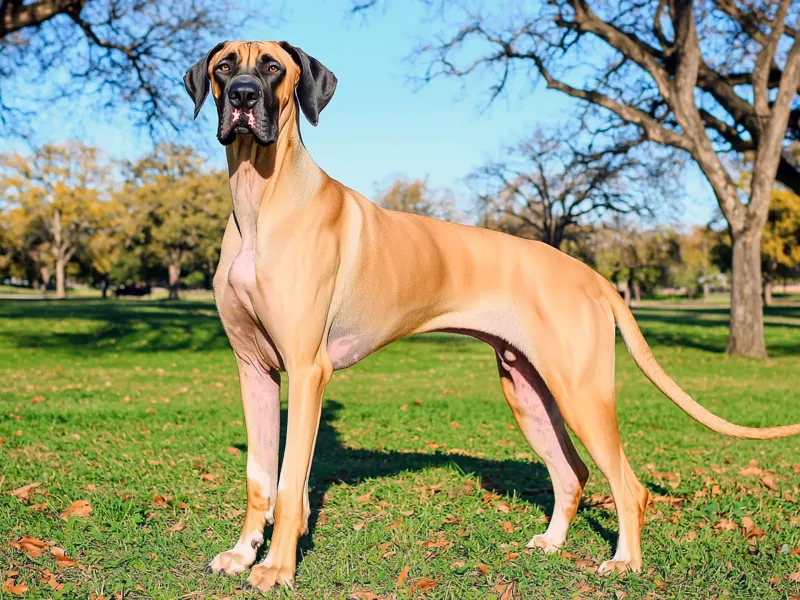
Great Danes are known for their towering size and gentle temperament. While generally friendly, their independent streak means they might not always be the best playmates with other dogs.
Early socialization is key to helping them develop good social skills and adapt to various social situations. Their size requires careful handling during interactions with smaller dogs.
Owners should provide controlled and positive experiences with other dogs, fostering an environment where Great Danes can build confidence and sociability without overwhelming their playmates.
Korean Jindo
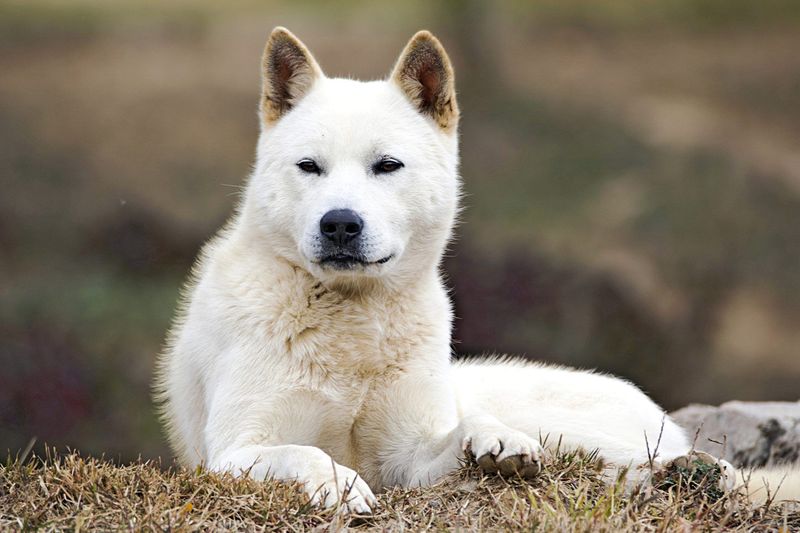
Korean Jindos are medium-sized dogs known for their loyalty and independence. Originating from Korea, they were bred for hunting and are known for their strong territorial instincts.
While they can form strong bonds with humans, their independent nature means they might not always be the most sociable with other dogs. Early socialization is crucial to help them adapt to different canine interactions.
Owners should focus on structured training and exposure to various social settings, ensuring their Jindo can develop into a well-adjusted companion capable of coexisting with other dogs.

